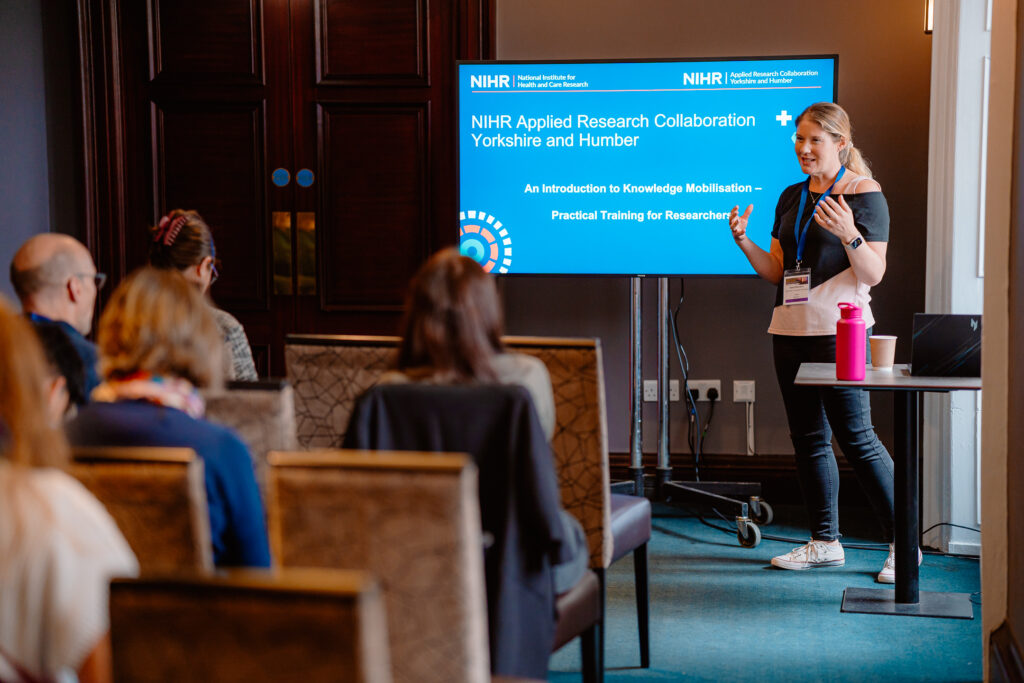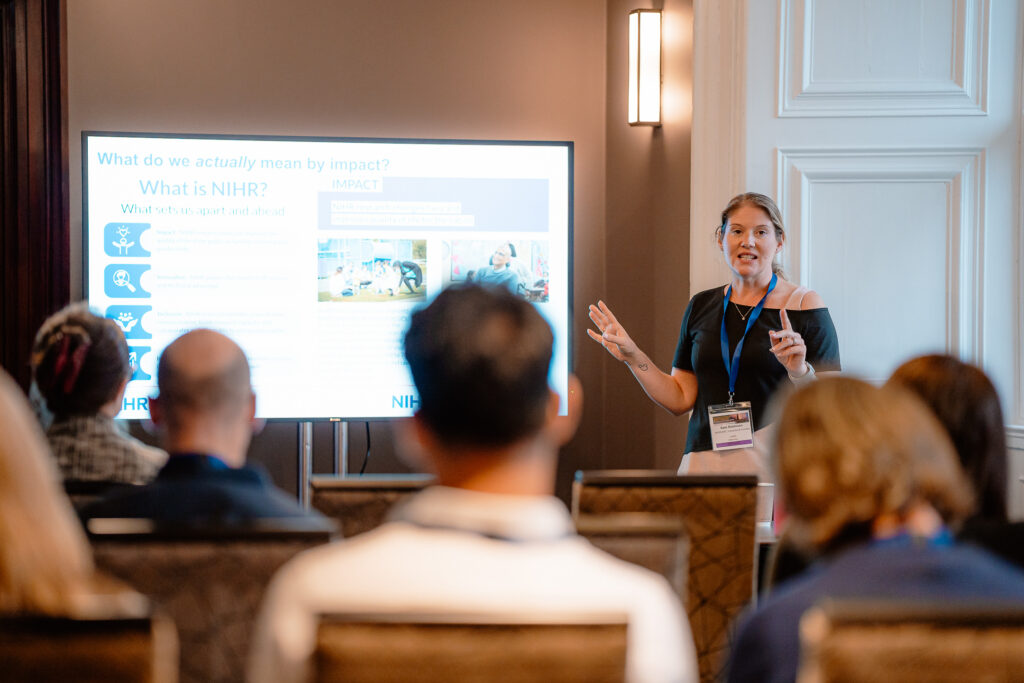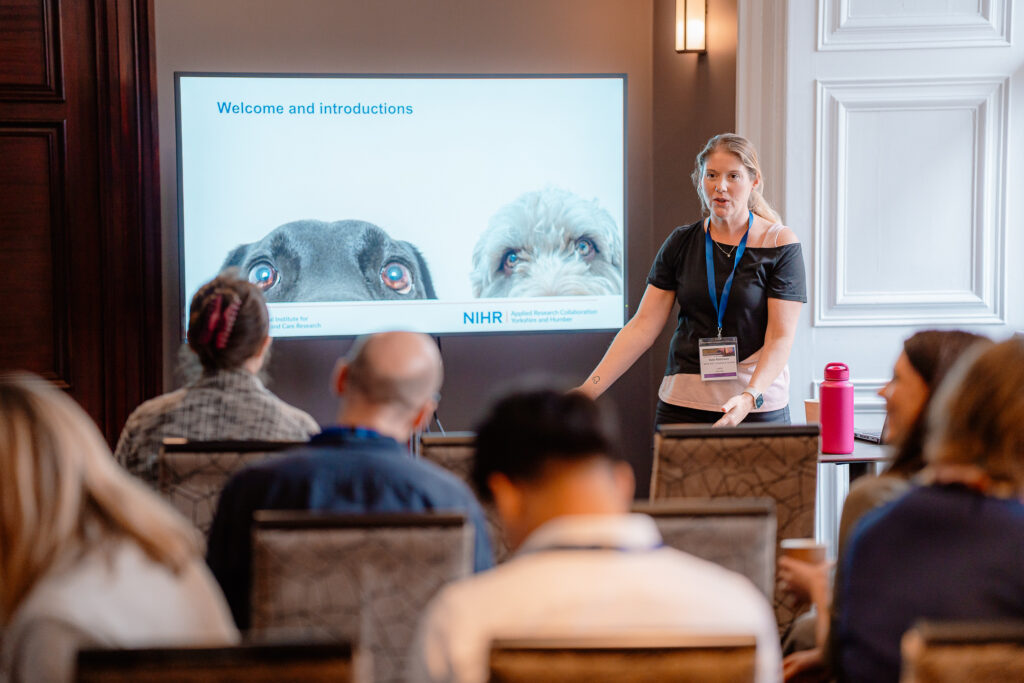The NIHR Applied Research Collaboration Yorkshire & Humber (YHARC) is celebrating a significant achievement: 100 researchers have now attended “An Introduction to Knowledge Mobilisation – Practical Training.” The training is designed to equip researchers with the tools and understanding to bridge the gap between research findings and real-world impact.
Feedback Highlights the Training’s Success
The training is clearly making a difference, as evidenced by positive feedback from participants. The average rating for participants’ knowledge of knowledge mobilisation (KM) jumped from 5.3 prior to the webinar to 8.3 after the webinar (on a scale of 1-10).
Attendees overwhelmingly rated the training highly, with a breakdown of:
- Excellent: 76.9%
- Good: 23.1%
Positive feedback for content and delivery
Kate Robinson, YHARC Knowledge Mobilisation lead has received numerous compliments for her engaging and knowledgeable approach. One unknown contact noted, “Very engaging and comprehensive and relaxed but very knowledgeable and motivated presenter”, while others felt she “made the topic really interesting” and provided “lots of good examples and real life anecdotes”.
The most useful parts of the training were frequently cited as the practical examples, the Knowledge to Action Framework, and the discussion of specific KM models and tools. One participant mentioned, “I learnt so much in such a short space of time, really useful, great trainer“.

“I really enjoyed the training for the YH ARC intro to KM..I’ve seen the K2A framework spoken about so much theoretically but it was the first time I’d seen someone explain it in an applied way which was so helpful! “
Looking Ahead: What researchers plan to implement
The training is clearly having a tangible impact, with many researchers planning to use the strategies they learned. Key tools mentioned for implementation include:
- The Knowledge to Action plan/framework (Graham er al., 2006)
- The NIHR ‘I’s and the three major shifts
- The Ward (2017) model and SPIRIT model
- Using visuals and the positive uses of AI in KM
92.3% of respondents said they would “Definitely yes” recommend the training to others.
References
Graham ID, Logan J, Harrison MB, Straus SE, Tetroe J, Caswell W, Robinson N. Lost in knowledge translation: time for a map? J Contin Educ Health Prof. 2006 Winter;26(1):13-24. doi: 10.1002/chp.47. PMID: 16557505.
Ward, Vicky. “Why, Whose, What and How? A Framework for Knowledge Mobilisers.” Evidence & Policy: A Journal of Research, Debate and Practice 13 (2017): 477-497.
A Desire for More
While the training was generally well-received, the demand for deeper dives into the subject is high. Suggestions for future sessions included:
- More time and longer, collaborative sessions.
- Training that builds on the foundation course.
- More in-depth training on AI, comms/creatives, and Implementation Science.
- A preference for in-person sessions to allow for more interaction and discussion.
,



